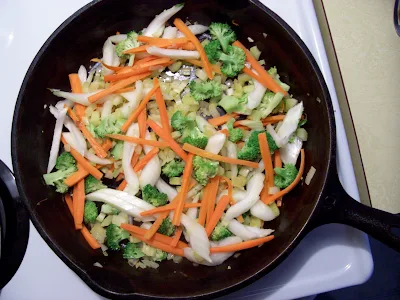 |
| "We don't know what it is, but after adding a bunch of industrially formulated edible substances synthesized from organic compounds, the consumer won't be able to resist." |
What is the difference between natural, minimally processed, and ultra-processed foods?
An example is illustrative of how one of these is not like the others.
Natural Food - Corn on the cob
Ingredients - corn
Minimally Processed Food - Frozen or canned corn
Ingredients - corn, water, salt
Ultra-Processed Food Phood- Flavoured Corn Tortilla Chips
Ingredients - Corn, Vegetable Oil (Corn, Canola, And/or Sunflower Oil), Maltodextrin, Salt, Cheddar Cheese (Milk, Cheese Cultures, Salt, Enzymes), Whey, Monosodium Glutamate, Buttermilk, Romano Cheese (Part-skim Cow's Milk, Cheese Cultures, Salt, Enzymes), Whey Protein Concentrate, Onion Powder, Corn Flour, Natural And Artificial Flavour, Dextrose, Tomato Powder, Lactose, Spices, Artificial Color (Yellow 6, Yellow 5, And Red 40), Lactic Acid, Citric Acid, Sugar, Garlic Powder, Skim Milk, Red And Green Bell Pepper Powder, Disodium Inosinate, And Disodium Guanylate.
CONTAINS MILK INGREDIENTS.
Making what you eat yourself out of natural whole food ingredients is time and labour intensive. That is why more people don't do it more often.
However, eating ultra-processed phoods has its drawbacks, too, and they are much more dangerous then spending more time in the kitchen.
UPF are the result of industrial processes and include some nasty ingredients you otherwise would not find anywhere else except maybe a chemical factory.
These industrialized, hyperpalatable, ultra processed foods are the main source (60 - 70%) of calories eaten in places like the US, UK, and Canada.
Big Phood is using the strategies Big Tobacco perfected to hoodwink the public because in both cases they know their products are harmful.
Their use of misinformation and disinformation is rampant (who is going after them?), and their discrediting of science and researchers that produce data that runs counter to their lies is straight out the Disinformation Playbook.
"The results of independent science don’t always shine a favorable light on corporate products and practices. In response, some corporations manipulate science and scientists to distort the truth about the dangers of their products, using a set of tactics made famous decades ago by the tobacco industry. We call these tactics the Disinformation Playbook."
- Union of Concerned Scientists
It is no coincidence that Big Tobacco once owned phood companies. What these companies also had in common with the tobacco pushers is that they both sold products meant to addict consumers.
They make products addictive in the phood industry by making them "hyperplatable".
Such extra-tasty UPFs are purposely tempting combinations of salts, fats, sugars and carbs that are so pleasing they trigger addictive responses in the diner/addict.
Remember "bet you can't eat just one"? It's not just a slogan for an addictive phood. It is also a promise, and a threat.
Key Facts:
- Tobacco-owned foods between 1988 and 2001 were up to 80% more likely to be hyperpalatable compared to those not owned by tobacco companies.
- Despite tobacco companies divesting from the U.S. food system by the mid-2000s, over 57% of fat-and-sodium and 17% of carbohydrate-and-sodium hyperpalatable foods were still prevalent in 2018.
- Hyperpalatable foods excessively stimulate our brain’s reward system, disrupting fullness signals, leading to overconsumption and related health issues.
Source: University of Kansas
These products are best avoided altogether, or used in strict moderation.
I wouldn't be surprised to find out there is collusion between Big Phood, Big Medicine, and Big Pharma.
Eating these phoods in excess could lead to poor health outcomes. The consumer/victim then turns to Big Medicine, which in turn will lead to doctors prescribing harm-aceutical products. It is the perfect trifecta of profit.
Everyone wins, except us, the people eating all this non-food phood.
In my house we have been eliminating industrial, chemical-laden phoods from our diet, and replacing them with healthful foods we make ourselves out of mostly organic, whole ingredients.
As a result, we have control over what we eat, and because of that, control over our health.
I guess it is a luxury to be able to make almost everything we eat from scratch.
However, if we as a society don't have the time to eat healthful, homemade meals, we should question what it is we are doing that is more important than healthful eating.
After years of effort, Linda and I are almost 100% off the crappy stuff, and challenge the corporate pushers with our own slogan -
"Bet you can't make us eat even one."
Ha! Don't even try.
Take back control over your health and say NO to ultra-processed phoods.

























